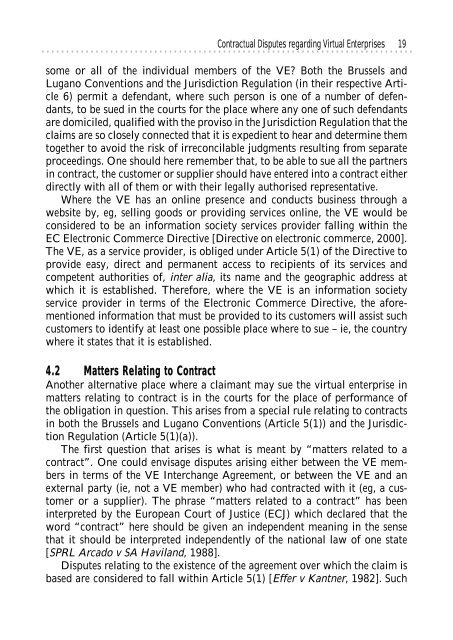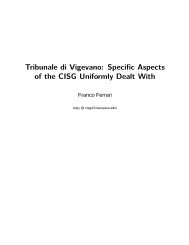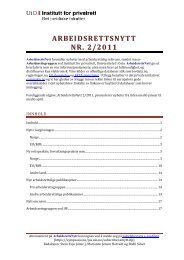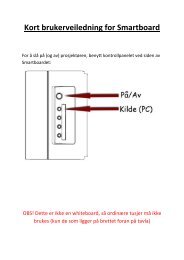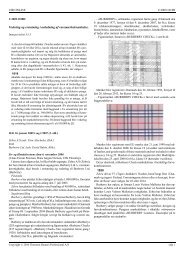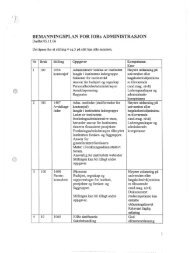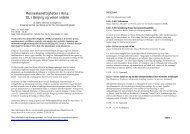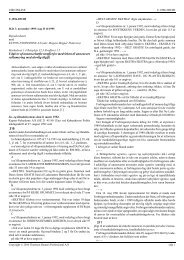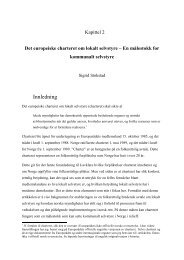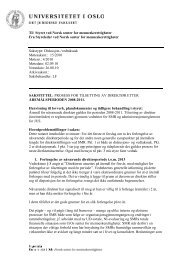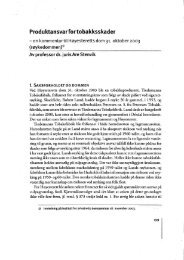Lee A. Bygrave (red.) YULEX 2002 - Universitetet i Oslo
Lee A. Bygrave (red.) YULEX 2002 - Universitetet i Oslo
Lee A. Bygrave (red.) YULEX 2002 - Universitetet i Oslo
Create successful ePaper yourself
Turn your PDF publications into a flip-book with our unique Google optimized e-Paper software.
............................................................................<br />
Contractual Disputes regarding Virtual Enterprises 19<br />
some or all of the individual members of the VE? Both the Brussels and<br />
Lugano Conventions and the Jurisdiction Regulation (in their respective Article<br />
6) permit a defendant, where such person is one of a number of defendants,<br />
to be sued in the courts for the place where any one of such defendants<br />
are domiciled, qualified with the proviso in the Jurisdiction Regulation that the<br />
claims are so closely connected that it is expedient to hear and determine them<br />
together to avoid the risk of irreconcilable judgments resulting from separate<br />
proceedings. One should here remember that, to be able to sue all the partners<br />
in contract, the customer or supplier should have ente<strong>red</strong> into a contract either<br />
directly with all of them or with their legally authorised representative.<br />
Where the VE has an online presence and conducts business through a<br />
website by, eg, selling goods or providing services online, the VE would be<br />
conside<strong>red</strong> to be an information society services provider falling within the<br />
EC Electronic Commerce Directive [Directive on electronic commerce, 2000].<br />
The VE, as a service provider, is obliged under Article 5(1) of the Directive to<br />
provide easy, direct and permanent access to recipients of its services and<br />
competent authorities of, inter alia, its name and the geographic address at<br />
which it is established. Therefore, where the VE is an information society<br />
service provider in terms of the Electronic Commerce Directive, the aforementioned<br />
information that must be provided to its customers will assist such<br />
customers to identify at least one possible place where to sue – ie, the country<br />
where it states that it is established.<br />
4.2 Matters Relating to Contract<br />
Another alternative place where a claimant may sue the virtual enterprise in<br />
matters relating to contract is in the courts for the place of performance of<br />
the obligation in question. This arises from a special rule relating to contracts<br />
in both the Brussels and Lugano Conventions (Article 5(1)) and the Jurisdiction<br />
Regulation (Article 5(1)(a)).<br />
The first question that arises is what is meant by “matters related to a<br />
contract”. One could envisage disputes arising either between the VE members<br />
in terms of the VE Interchange Agreement, or between the VE and an<br />
external party (ie, not a VE member) who had contracted with it (eg, a customer<br />
or a supplier). The phrase “matters related to a contract” has been<br />
interpreted by the European Court of Justice (ECJ) which decla<strong>red</strong> that the<br />
word “contract” here should be given an independent meaning in the sense<br />
that it should be interpreted independently of the national law of one state<br />
[SPRL Arcado v SA Haviland, 1988].<br />
Disputes relating to the existence of the agreement over which the claim is<br />
based are conside<strong>red</strong> to fall within Article 5(1) [Effer v Kantner, 1982]. Such


